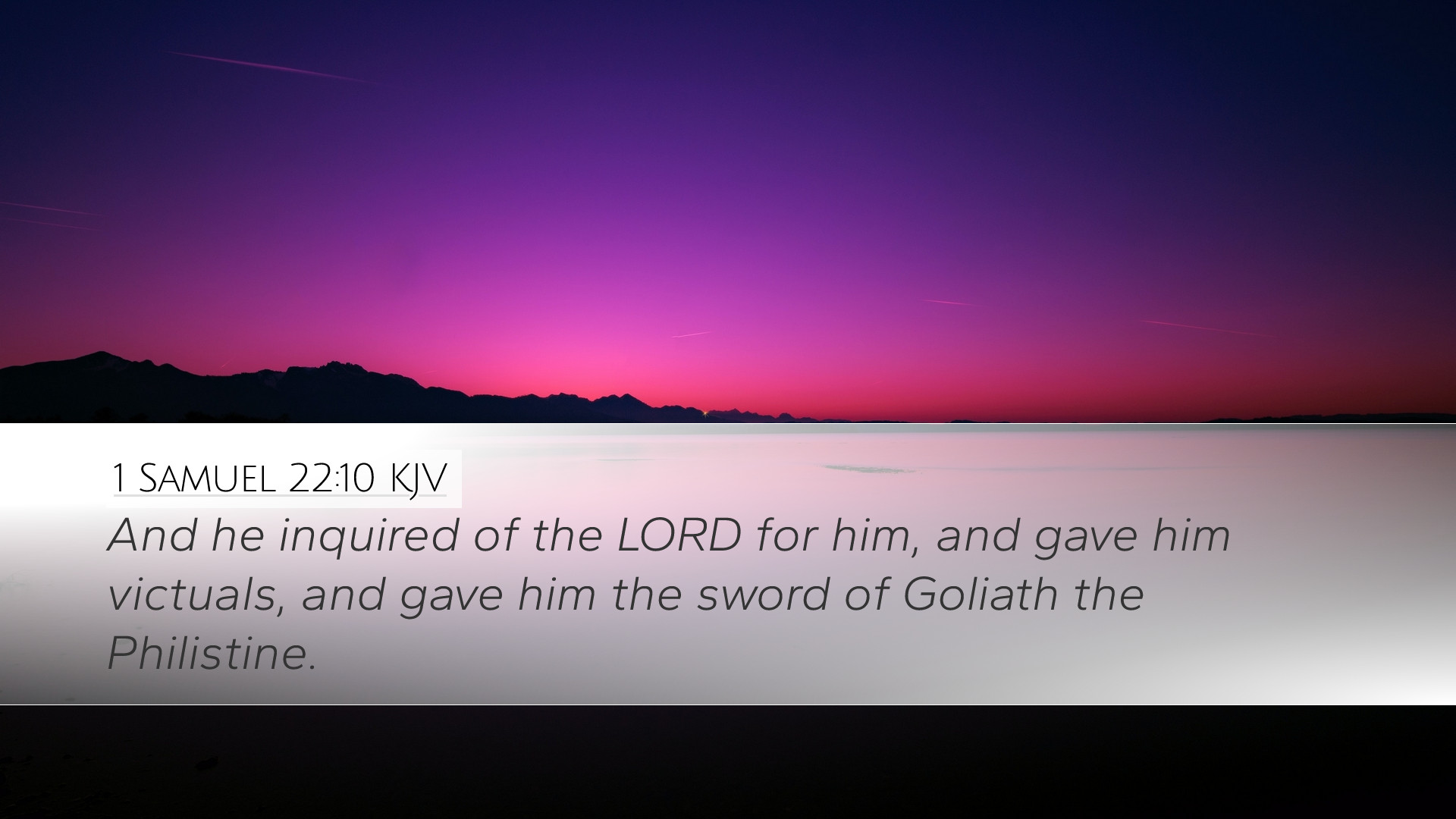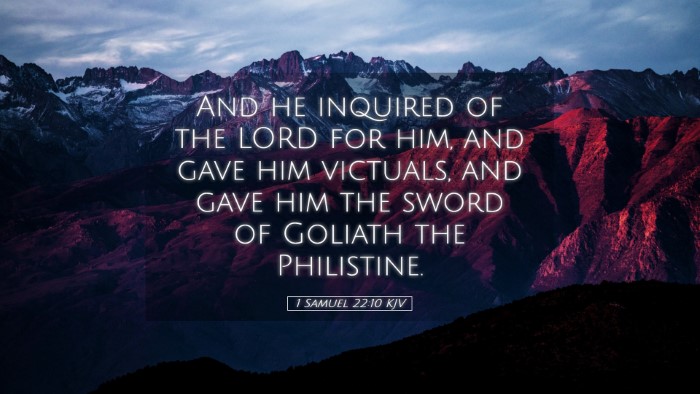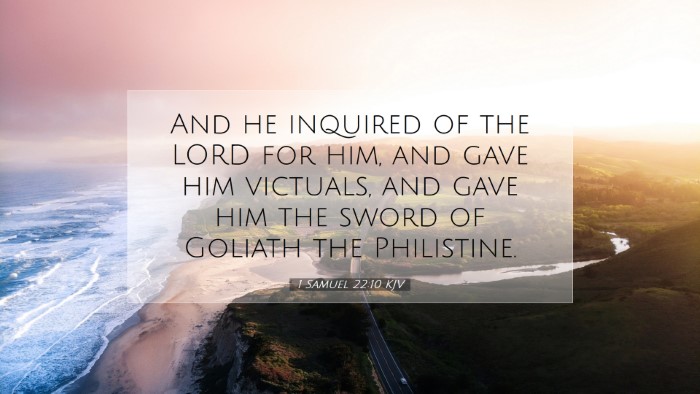Commentary on 1 Samuel 22:10
Verse: 1 Samuel 22:10 - "And he inquired of the Lord for him and gave him provisions and gave him the sword of Goliath the Philistine."
Contextual Overview
This verse comes during a particularly tumultuous period in the life of David, as he fled from King Saul, who sought to kill him. The context sets up an understanding of David's leadership qualities, as well as the loyalty of those around him, which is significant in the development of his character as God’s anointed future king.
Analysis of Key Elements
- Inquiring of the Lord:
The phrase "inquired of the Lord" demonstrates David’s reliance on divine guidance in moments of uncertainty. Matthew Henry emphasizes that such inquiry reflects a heart attuned to God's will, which is essential for anyone in leadership. This highlights the importance of prayer and seeking God's wisdom, especially when faced with adversities.
- Provisions:
The act of giving provisions underscores the community support that existed among David and his followers. Albert Barnes notes that physical sustenance often symbolizes spiritual nourishment, which is vital during times of distress. David's followers were not just providing food but were also indicating their allegiance to him, signaling a communal solidarity against Saul’s regime.
- The Sword of Goliath:
The sword of Goliath serves multiple symbolisms. Adam Clarke articulates that it represents God's past deliverance. When David faced Goliath, it was God's strength, not David's, that secured victory. Thus, the sword is a tangible reminder of God's faithfulness and power in the face of formidable challenges. For David, carrying this sword would not only evoke memories of his greatest victory but also his selection by God to lead.
Theological Insights
Theological reflections on this verse reveal layers of divine providence. David’s ability to receive provisions and the sword reflects God’s continual provision even in dire circumstances. Matthew Henry notes that this act not only meets physical needs but also reinforces God’s plan as He equips David for future challenges. The provision of the sword indicates preparation for the battles that lie ahead, not merely physically but spiritually and emotionally.
Spiritual Applications
This narrative illustrates profound spiritual truths relevant to pastors and scholars alike:
- Dependence on God:
In all endeavors, especially in leadership roles, the necessity of seeking God’s guidance cannot be overstated. This episode encourages introspection on how leaders are utilizing prayer and seeking the Lord's counsel in ministry and personal life.
- Community Support:
The provision David receives from his followers reminds modern congregations of the importance of mutual support within the body of Christ. The early church’s practices of sharing resources reflect this communal aspect that is integral for thriving in challenging times.
- Reminders of God’s Faithfulness:
The sword symbolizes the victories won through faith, serving as a reminder for believers today to look back on God’s historical acts of deliverance in their own lives. This practice fosters gratitude and strengthens faith amid trials.
Conclusion
1 Samuel 22:10 offers a rich tapestry of theological insights by reminding the reader of David’s reliance on God, the community of faith, and the tangible symbols of God's provision in times of need. For pastors, students, and theologians, this single verse serves as a platform for exploring the interplay of divine guidance, communal loyalty, and the remembrance of God’s mighty acts, enriching their understanding and practice of faith.


